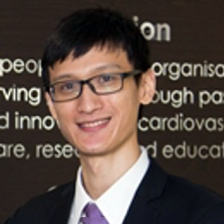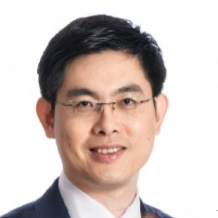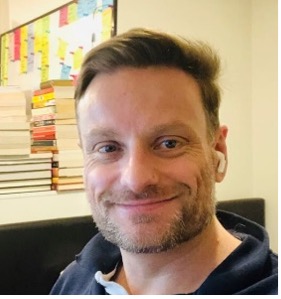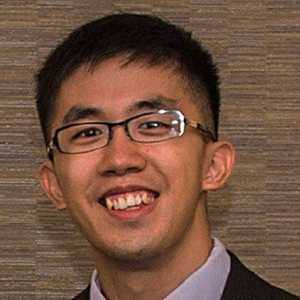course-sph5420
- Home
- course-sph5420
SHORT MODULE: Evidence Synthesis for Health Technology Assessment
Date: 12 Aug 2022 – 4 Nov 2022, every Friday
Time: 6pm – 9pm (SGT)
Format: Face-to-face only
Course outline
Research growth and the related exponential rate of accumulation of publications have escalated the need for effective and efficient methods to synthesise the evidence base for evaluating health technologies. This module is designed to provide students with the skills to generate good quality evidence for conducting health technology assessments (HTA) that meet the needs of decision makers.
Learning outcomes
This course is designed to provide participants with the skills to generate good quality evidence for use in health technology assessment (HTA).
Upon completion of this course, participants will be able to:
- Demonstrate an understanding of the role of HTA in informing healthcare decision-making
- Recognise that a broad range of clinical questions (e.g. therapy, diagnosis, prognosis, aetiology, harm, and disease prevalence) are relevant to HTA
- Be familiar with the PRISMA guidelines for conducting systematic review
- Be familiar with RevMan for conducting meta-analysis
- Be familiar with tools for assessing study quality and risk of bias
- Incorporate health-related quality of life data from published literature in HTA
Course Syllabus
- Introduction to health technology assessments (HTA) and its application
- Systematic review – Planning the study
- Systematic review – Collecting the data
- Systematic review – Risk of bias and interpreting the results
- Meta-analysis
- Network meta-analysis
- Clinical Epidemiology – Diagnosis
- Health-related Quality of Life data – Identification, evaluation and use
Pre-requisites
Nil
Target Audience
- Healthcare professionals (doctors, nurses, pharmacists or allied health professionals) with an interest to conduct HTA.
- Research staff who provide technical or librarian support to healthcare professionals.
- Professionals with quantitative background (e.g. economics, biostatistics or business) who would like to understand how clinical evidence and patient reported outcomes are incorporated into HTA.
Course instructors
 | Course coordinator: Dr Wee Hwee-Lin Associate Professor, Saw Swee Hock School of Public Health and Department of Pharmacy, Faculty of Science, National University of Singapore Dr Wee is a joint Associate Professor in the Saw Swee Hock School of Public Health and Department of Pharmacy, Faculty of Science at the National University of Singapore. Her current work involves understanding patient preferences for high cost treatments, public preferences for preemptive pharmacogenetic testing and factors associated with well-being among Singaporeans. |
 | Lecturer: Dr Charles Zheng Qishi Epidemiologist, Singapore Clinical Research Institute Dr Zheng joined Singapore Clinical Research Institute in 2014 as an Epidemiologist. His interests lie in systematic review and meta-analysis for intervention, diagnostic and observational studies, design and statistical analysis for observational study and health economic evaluation. He is currently collaborating with investigators in clinical research on cardiovascular diseases, orthopaedics and paediatrics. In addition, as a member of the Cochrane Singapore, he teaches in Cochrane systematic review workshops and provides lectures related with evidence-based medicine. |
 | Lecturer: Dr David Bin-Chia Wu Regional Director, Real World Evidence & Health Economics (Asia Pacific) Dr David Wu Bin-Chia is the Regional Director of Real World Evidence & Health Economics at The Janssen Pharmaceutical Companies of Johnson & Johnson in Singapore and is also an Adjunct Senior Lecturer of Monash University Malaysia. His diverse research activities centred around generating evidence through economic evaluations based on various economic modelling and biostatistical approaches to inform healthcare policy decision-making. He has collaborated extensively with international institutions including the World Health Organization, the United States Agency for International Development, Centers for Disease Control in Taiwan, the Malaysian Ministry of Health, Ministry of Health (the Philippines), and has provided expert advice and technical support to many pharmaceutical companies in health economics and outcomes research. |
 | Lecturer: Dr Luo Nan Associate Professor, Saw Swee Hock School of Public Health, National University of Singapore Dr Luo Nan is an Associate Professor in Saw Swee Hock School of Public Health (SSHSPH) at the National University of Singapore (NUS). His main research interest is measurement of patient-reported outcomes (PRO) including health-related quality of life (HRQoL) and health-state utility for use in economic evaluations. Dr Luo is internationally known for his research work on the EQ-5D instruments. His teaching areas are health services research methods and questionnaire design. |
 | Lecturer: Mr Adrien Gras Head of Market Access & HEOR, APAC, Ipsos Mr Adrien Gras is highly experienced leader in global pharmaceutical and medical device market access and HEOR. Adrien currently leads a team of experts in the field across the APAC region. He has been involved in all aspects of product development, from R&D activities such as drug target identification and drug discovery, pipeline commercial strategy, economic modelling, government reimbursement negotiation, and lifecycle management. He has published peer-reviewed journals and manuals in the fields of biochemistry, health economics and policy. Adrien was awarded a BSc in Biotechnology from Imperial College before completing an MRes in Structural Biology at Birkbeck College. |
 | Lecturer: Mr Omar Akhtar HEOR Director APAC, Ipsos Mr Omar Akhtar is currently Director of Health Economics and Outcomes for APAC with Ipsos. His research interests focus on healthcare system strengthening, HTA development in APAC, health economics, evidence synthesis, and epidemiology. He has collaborated extensively with government and academics in ASEAN, East Asia, and the Middle East. More generally, he has undertaken projects and published in every continent save for Antarctica, including submitting multiple NICE submissions and publishing bilingual Japanese literature reviews. Formerly, he was a health economist with CADTH (the Canadian HTA agency), bringing insights from both sides of the proverbial table in evaluating and funding health technologies. |
 | Lecturer: Mr David Champion Senior Director at Ansea Healthcare Consulting Mr David Champion has 17 years’ experience in the healthcare industry having held a variety of country, regional & global roles in Pricing, Market Access & Health Economics in multiple geographies including Australia, Thailand, Singapore, Hong Kong & UK, in companies such as Pfizer, Novartis, Amgen. He has worked directly with and prepared numerous reimbursement submissions to payors & HTA bodies including Australian PBAC, and MSAC, UK NICE, Thailand HiTAP, and Singapore’s ACE. David has led the preparation of more than 10 Global Value Dossiers and designed, implemented and executed over a dozen patient access programs in Hong Kong, Singapore, Thailand, Vietnam, Philippines and Malaysia in collaboration with 3rd party patient organizations and various governments including Singapore, Philippines, Thailand and Vietnam. |
 | Lecturer: Dr. Hwang Yi-Fu Jeff Lecturer, Saw Swee Hock School of Public Health, National University of Singapore Dr Jeff Hwang is an Occupational Physician and his primary appointment is at the Woodlands Health Campus. He was previously a lecturer at the Saw Swee Hock School of Public Health (SSHSPH) at the National University of Singapore (NUS). His main research area is in workplace safety and health services, and his teaching areas are in occupational medicine, total workplace safety and health, and clinical epidemiology. |
Registration
The registration for this course has been closed.
For more information, please contact us at hiper@nus.edu.sg


